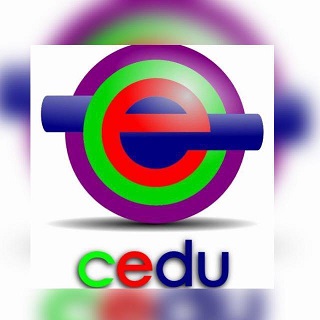THE STATE OF KNOWLEDGE ABOUT NEWSPAPER POTIGUAR BRADO CONSERVADOR
Keywords:
Newspaper Brado Conservador, Scientific knowledge, Press potiguar, Professional educationAbstract
This article aims to investigate the social developments arising from the insertion of the Rio Grande do Sul press in the 19th century, relating them to the bibliographic-academic production on the newspaper Brado Conservador and to investigate the consequences of its insertion in the North Rio-Grandense society. It was also sought to analyze the use of the newspaper as a source in the discourse of scientific knowledge in academic works. In this sense, the methodology adopted is qualitative research and discourse analysis, based on the reading and interpretation of five studies that talk about the theme, such as: Brito (2016), Burgardt (2014), Maciel (2017), Morais (2000) and Medeiros (2011). In view of this, it was observed that the newspaper Brado Conservador developed, focusing on five research areas: education, social and gender movements, drought, work and slavery.
Downloads
References
ANDRADE, José Carlos de. História hoje: saiba o que foi o motim das mulheres. Brasília: Rádio Agência Nacional, 2015. Disponível em: https://radioagencianacional.ebc.com.br/geral/audio/2015-08/historia-hoje-saiba-o-que-foi-o-motim-das-mulheres. Acesso em: 02 de jul. de 2020.
ARÓSTEGUI, Júlio. A pesquisa histórica. Teoria e método. Bauru: Edusc, 2006. 592 p.
BRITO, João Fernando Barreto de. Braços Embaraçados: As relações de trabalho no Rio Grande do Norte (1850-1877). Unioeste: Espaço Plural, Curitiba, n. 34, p.403-436, 2016. Disponível em: http://e- revista.unioeste.br/index.php/espacoplural/article/viewFile/14960/10148. Acesso em: 30 jun. 2018.
BURGARDT, Camila Machado. A invenção da seca no século XIX: A imprensa do norte e o romance os retirantes. 2014. 168 f. Dissertação (Mestrado) - Curso de Letras, Programa de Pós-graduação em Letras, Universidade Federal da Paraíba, João Pessoa, 2014. Disponível em: http://tede.biblioteca.ufpb.br/bitstream/tede/6270/1/arquivototal.pdf. Acesso em: 30 jun. 2018.
CHARTIER, Roger. A História Cultural entre práticas e representações, Lisboa: Difel, 1990.
GINZBURG, Carlos. Mitos, emblemas, sinais: morfologia e história. São Paulo: Cia. das letras, 1989. p.177.
GOMES, Ângela de Castro. A invenção do trabalhismo. 3.ed. Rio de Janeiro: Fundação Getulio Vargas, 2005.
MACIEL, Francisco Ramon de Matos. Sedentas de sangue: ações em massa de mulheres retirantes no Rio Grande do Norte (1877-1879). Anpuh: História e Democracia, Natal, p.1-12, 2017. Disponível em: https://www.snh2017.anpuh.org/resources/anais/54/1488471578_ARQUIVO_sedentasporsangue.pdf. Acesso em: 30 jun. 2018.
MEDEIROS, Maria Joyce Paiva de. Modos de Argumentação do Discurso em Cartas de Leitores do Século XIX: Humanidades. Natal, v. 19, p.1-10, 30 jun. 2011. Disponível em: http://www.cchla.ufrn.br/shXIX/anais/GT15/ARTIGO SEMANA DE HUMANIDADES GRUPO INES_JOYCE_30_06_11.pdf. Acesso em: 30 jun. 2018.
MINAYO, M. C. S. O desafio do conhecimento. Pesquisa qualitativa em saúde. São Paulo: Hucitec, 2007.
MINAYO, Maria Cecília de Souza. O desafio do conhecimento: pesquisa qualitativa em saúde. 7. Ed. São Paulo: Hucitec; Rio de Janeiro: Abrasco, 2000.
MORAIS, Maria Arisnete Câmara de. Isabel Gondim: Uma Vida pela educação. Anped: História da Educação, Natal, p.1-17, 2000. Disponível em:
http://www.anped.org.br/sites/default/files/gt_02_23.pdf. Acesso em: 30 jun. 2018.
PINSK, Carla Bassanezi. Fontes Históricas. São Paulo: Contexto, 2005.
PROST, Antoine. Doze Lições sobre a História. Belo Horizonte: Autêntica, 2008. 288 p.
SANTOS, Paulo Pereira dos. Evolução Econômica do Rio Grande do Norte (do século XVI ao século XX). Natal: Clima, 1994.
SANTIAGO, Emerson. Revolta do quabra-quilos. São Paulo: Brasil Escola, 2012. Disponível em: https://www.infoescola.com/brasil-imperial/revolta-do-quebra-quilos/. Acesso em: 10 jul. 2020.
SILVEIRA, Rosa Maria Godoy. O regionalismo nordestino: existência e consciência da desigualdade regional. Fac-similar. João Pessoa: Editora Universitária da UFPB, 2009.
Published
How to Cite
Issue
Section
License
Copyright
The submission of originals to Cenas Educacionais (Educational Scenes - CEDU) implies the transfer, by the authors, of the publication rights. The copyright for the manuscripts published in this journal is the author(s), with CEDU rights over the first publication. Authors(s) may only use the same results in other publications by explicitly indicating CEDU as the means of the original publication.
Creative Commons License
Except where otherwise specified, the terms of a Creative Commons Attribution-ShareAlike 4.0 International License license apply to the material published in this journal, which allows unrestricted use, distribution and reproduction in any medium provided the original publication is correctly cited.






 This work is licensed with a License
This work is licensed with a License 